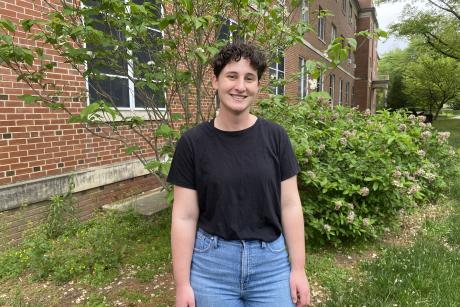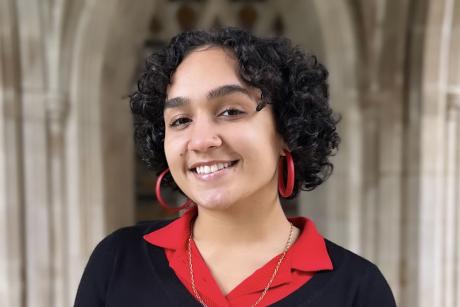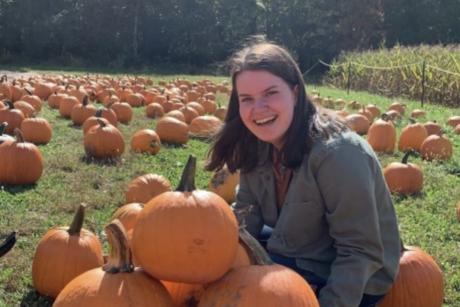Watch the full Think Global event, "The Disappearing Amazong: Existential Threates to a Way of Life."
Published April 17, 2024, last updated on April 19, 2024 under Around DGHI
The rivers that twist through the Amazon region are more than just highways for the many indigenous communities that live in the vast rainforest. They are a vital source of food, economic activity, and social and spiritual connection. And as climate change begins to impact the Amazon’s river network, these communities are among the first to feel it.
“It’s more than just geography. The river is the central element of people’s lives,” said Alicia Cacau, a doctoral candidate in tropical and infectious diseases at the Universidade do Estado do Amazonas, during a DGHI Think Global event on April 16. “They depend on the river to survive, and this is changing now.”
Cacau, who spoke remotely from Brazil, said severe drought in the Amazon region is affecting river flows and increasing the incidence of forest fires, which are contributing to the alarming deterioration of one of the world’s most important natural resources. It’s a pattern that has grave implications for the global climate and the environmental stability of the planet as a whole. But much of the discussion during the DGHI event focused on how those changes are reshaping the health and livelihoods of the 50 million people who live in the Amazon region.
“The people who inhabit these locations and have built their livelihoods out of sustainable interactions with the environment are going to be impacted drastically, and that’s part of the equation that is not as widely discussed,” said Joao Ricardo Vissoci, Ph.D., a Duke assistant professor of emergency medicine, global health and neurosurgery who moderated the event.
William Pan, Ph.D., a Duke professor of global environmental health who has studied the health impacts of gold mining in the Amazon region, said the mostly poor, rural communities that dot the Amazon are at the heart of an ongoing battle over use of the region's forests and natural resources.
“We’re talking with indigenous people who are not just affected by deforestation and climate change, but by lack of governance,” Pan said, noting that legal protections of the environment and regulation of activities such as mining vary across the eight countries in the Amazon region. “The environment continues to be the fuel for a number of problems they have.”
Pan noted that wide-scale deforestation in the Amazon is changing the epidemiology of diseases that affect communities. Drier conditions are increasing the spread of diseases like dengue and Zika, and changes in lifestyle have increased risks of obesity and other chronic diseases, he said.
At the same time, it is also important to understand the socioeconomic pressures on people who are trying to make a living in the forest, said Felipe Murta, Ph.D., a researcher at Brazil's Fundação de Medicina Tropical - Dr. Heitor Vieira Dourado.
“Yes, the gold miners are making a problem for the environment, but most of them are poor, illiterate people, and they are dying, too,” he said, speaking from Brazil. “Most of them don’t know the impact they cause.”
Gustavo Furtado, Ph.D., an associate professor of Romance studies who co-directs Duke’s Amazon Lab, said the dire consequences environmental changes may have on Amazonian communities may feel like “an apocalyptic scenario.” But he also pointed to the resilience of indigenous communities, which have been forced to adapt to disruptions to their environment and way of life for more than 500 years.
“There’s no question that we’re going to need to find wayts to live different. But some people in the region have already mastered that, and we can learn from them,” he said.
Several panelists echoed this point, underscoring the need for active community engagement in any efforts to mitigate the impacts of climate change in the Amazon. Brian McAdoo, Ph.D., an associate professor of earth and climate science at Duke’s Nicholas School of the Environment advocated “radical listening,” an approach he has seen NGOs use when seeking to aid communities that have been affected by natural disasters.
“Often times, people who live in the communities have the best answers to these problems. They just don’t have the resources to actually evolve the solutions,” he said. “If you can listen to the solutions they have, then we just need to provide resources and the tools to help them build the paths to solve their own problems."


